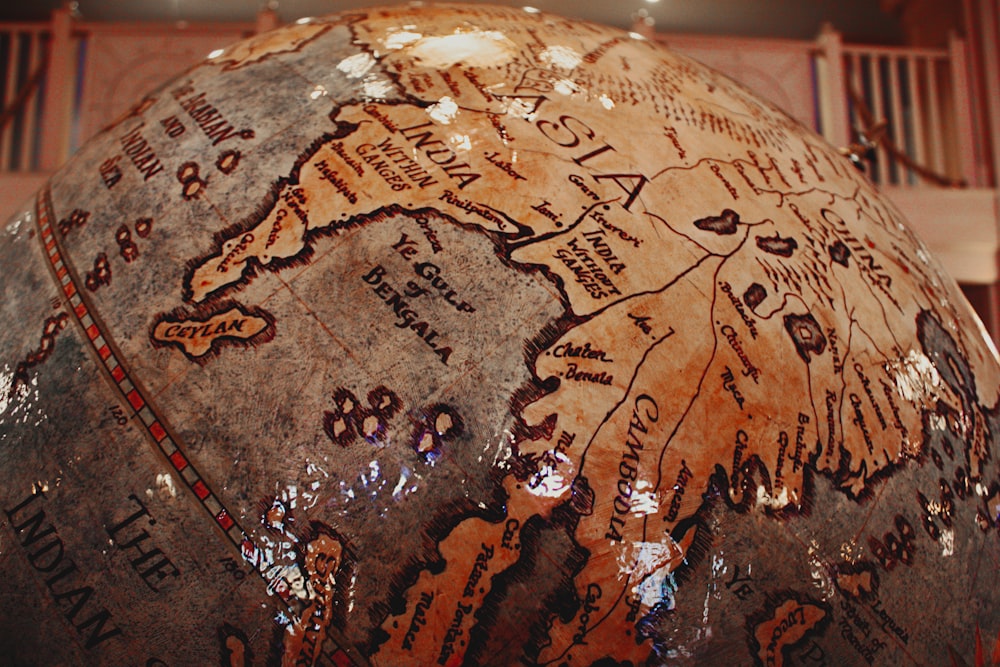The US Must Take The Lead On Globalization If It Hopes To Compete With China
America should re-embrace free trade and free markets to maintain a vibrant economy.
Image Source: Unsplash
Global commerce is being rearranged by Western sanctions on Russia, COVID inspired hardening of supply chains and Western apprehensions about China, but none of this spells the end of globalization.
It merely heightens the competition between the United States and China about who will lead. The process will disrupt the International Monetary Fund (IMF), World Bank and World Trade Organization (WTO) as big-power competition will channel through an emerging Asian-centered regime.
Ineffective global institutions
The IMF was established to maintain fixed exchange rates to enable commerce and short-circuit a repeat of the competitive currency devaluations of the 1930s. With the advent of market-determined exchange rates, it has proven ineffective at resolving complaints about governments suppressing currency values to gain competitive advantages.
China’s Belt and Road and European and American responses are weaponizing development finance, and the World Bank can do little about it.
President Donald Trump’s bilateralism with China was hardly novel. President Bill Clinton extracted concessions from Japan with 100% tariffs on luxury sedans, and complimentary regional deals parallel the entire history of the WTO.
The General Agreement on Tariffs and Trade (GATT) was created to reduce tariffs to encourage market-driven trade and promote democracy. As tariffs came down, it took on product standards, subsidies, the protection of intellectual property and other issues. Re-christened the WTO in 1995, it formalized a dispute-settlement process that had evolved ad hoc.
Which comes first? Democracy or trade?
In the early 1950s, Germany and Japan were only admitted after democracy and market economies were re-established. In contrast, Russia and China were admitted into the WTO after the Cold War under the premise that trade would help establish democracy.
Moscow found vast markets for oil CL00, 0.19%, natural gas NG00, 1.17%, nonferrous metals and agricultural products. President Vladimir Putin jailed dissenters, enriched oligarchs and invested in a large army, military technology and cyber tools to undermine Western elections, subvert U.S. efforts to stabilize the Middle East and invade Georgia, Crimea and now Ukraine.
China has exploited the letter and spirit of WTO rules with huge state subsidies, technology theft and opaque market-access barriers, and the deft subversion of the WTO dispute-settlement mechanism. It aspires to global dominance in semiconductors, 5G wireless, electric vehicles, and artificial intelligence.
Meanwhile, Beijing underinvests in public health and rural development, squanders wealth with an internal security system and persecutes Muslims in Xinjiang. It is building the world’s largest navy to intimidate neighbors in the Western Pacific, project power globally, and perhaps take Taiwan by force.
China offers its autocratic market-socialism as an alternative to democracy and has no more place in the WTO than Russia or North Korea, which thankfully is not a member.
Western counterattack
Especially in semiconductors and electric vehicles, the United States and EU are fashioning counter initiatives to Chinese industrial-policy aggression but this hardly means the end of globalization. The economies of scale required in these and other high-tech industries require large markets and exports for domestic industrial policies to succeed.
Fearing strategic dependency, the Trump and Biden administrations have tried to stifle the development of the semiconductor industry and a new arms race. Massive subsidies for chips factories in China, America and Europe have emerged, and Asia will be the logical destination for all the silicon that home markets cannot absorb.
President Barack Obama championed the Trans-Pacific Partnership (TPP) to provide an outlet for U.S. exports and foster trade among like-minded nations but Trump and now Biden want no part in it.
Biden’s policies appear hostage to progressive intellectuals and organized labor who see free markets and free trade as the devil’s workshop. They fashion those as harmful to the interests of minorities, women and boosting inequality.
Biden has initiated an Indo-Pacific Economic Framework, which permits countries to individually opt into arrangements on trade, supply chains, the green transition, and anticorruption. Details are limited and U.S. offers little in the way of additional U.S. market access as an incentive.
Treasury Secretary Janet Yellen touts friend shoring among like-minded nations to secure supply chains against disruption but again, offers few carrots to inspire cooperation.
China’s own trade initiatives
In Asia, China has created its own Regional Comprehensive Economic Partnership. It has applied to join the TPP, but it would unlikely accomplish membership if the United States rejoined.
With either China or the United States in the TPP, a new Asian-centered trade organization would compete with the WTO—the U.K. is joining and pressure is building for the EU to apply.
America can lead globalization by re-embracing free trade through the TPP or leave the door open for China and its antidemocratic values.
More By This Author:
Economic Data Forecasts For The Weeks Of Sept. 19 And 26Green Energy Subsidies Will Boost Inflation, Distort Investment
Economic Data Forecasts For The Weeks Of Sept 12 And 19
Peter Morici is an economist and emeritus business professor at the University of Maryland, and a national columnist.




